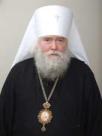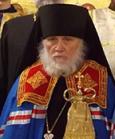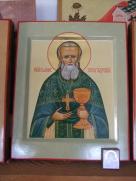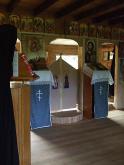Wednesday, August 26, 2015
The way of light and the way of darkness
The way of light
The way of light, then, is as follows. If any one desires to travel to the appointed place, he must be zealous in his works. The knowledge, therefore, which is given to us for the purpose of walking in this way, is the following. Thou shalt love Him that created thee: thou shalt glorify Him that redeemed thee from death. Thou shalt be simple in heart, and rich in spirit. Thou shalt not join thyself to those who walk in the way of death. Thou shalt hate doing what is unpleasing to God: thou shalt hate all hypocrisy. Thou shalt not forsake the commandments of the Lord. Thou shalt not exalt thyself, but shalt be of a lowly mind. Thou shalt not take glory to thyself. Thou shalt not take evil counsel against thy neighbour. Thou shalt not allow over-boldness to enter into thy soul. Thou shalt not commit fornication: thou shalt not commit adultery: thou shalt not be a corrupter of youth. Thou shalt not let the word of God issue from thy lips with any kind of impurity. Thou shalt not accept persons when thou reprovest any one for transgression. Thou shalt be meek: thou shalt be peaceable. Thou shalt tremble at the words which thou hearest. Thou shalt not be mindful of evil against thy brother. Thou shalt not be of doubtful mind as to whether a thing shall be or not. Thou shalt not take the name of the Lord in vain. Thou shalt love thy neighbour more than thine own soul. Thou shalt not slay the child by procuring abortion; nor, again, shalt thou destroy it after it is born. Thou shalt not withdraw thy hand from thy son, or from thy daughter, but from their infancy thou shalt teach them the fear of the Lord. Thou shalt not covet what is thy neighbour’s, nor shalt thou be avaricious. Thou shalt not be joined in soul with the haughty, but thou shalt be reckoned with the righteous and lowly. Receive thou as good things the trials which come upon thee. Thou shalt not be of double mind or of double tongue, for a double tongue is a snare of death. Thou shalt be subject to the Lord, and to [other] masters as the image of God, with modesty and fear. Thou shalt not issue orders with bitterness to thy maidservant or thy man-servant, who trust in the same [God ], lest thou shouldst not reverence that God who is above both; for He came to call men not according to their outward appearance, but according as the Spirit had prepared them. Thou shalt communicate in all things with thy neighbour; thou shalt not call things thine own; for if ye are partakers in common of things which are incorruptible, how much more [should you be] of those things which are corruptible! Thou shalt not be hasty with thy tongue, for the mouth is a snare of death. As far as possible, thou shalt be pure in thy soul. Do not be ready to stretch forth thy hands to take, whilst thou contractest them to give. Thou shalt love, as the apple of thine eye, every one that speaketh to thee the word of the Lord. Thou shalt remember the day of judgment, night and day. Thou shalt seek out every day the faces of the saints, either by word examining them, and going to exhort them, and meditating how to save a soul by the word, or by thy hands thou shalt labour for the redemption of thy sins. Thou shalt not hesitate to give, nor murmur when thou givest. “Give to every one that asketh thee,” and thou shalt know who is the good Recompenser of the reward. Thou shalt preserve what thou hast received [in charge], neither adding to it nor taking from it. To the last thou shalt hate the wicked [one]. Thou shalt judge righteously. Thou shalt not make a schism, but thou shalt pacify those that contend by bringing them together. Thou shalt confess thy sins. Thou shalt not go to prayer with an evil conscience. This is the way of light.
The way of darkness
But the way of darkness is crooked, and full of cursing; for it is the way of eternal death with punishment, in which way are the things that destroy the soul, viz., idolatry, over-confidence, the arrogance of power, hypocrisy, double-heartedness, adultery, murder, rapine, haughtiness, transgression, deceit, malice, self-sufficiency, poisoning, magic, avarice, want of the fear of God. [In this way, too,] are those who persecute the good, those who hate truth, those who love falsehood, those who know not the reward of righteousness, those who cleave not to that which is good, those who attend not with just judgment to the widow and orphan, those who watch not to the fear of God, [but incline] to wickedness, from whom meekness and patience are far off; persons who love vanity, follow after a reward, pity not the needy, labour not in aid of him who is overcome with toil; who are prone to evil-speaking, who know not Him that made them, who are murderers of children, destroyers of the workmanship of God; who turn away him that is in want, who oppress the afflicted, who are advocates of the rich, who are unjust judges of the poor, and who are in every respect transgressors.
Epistle of the Holy Apostle Barnabas, 1st century
Wednesday, June 17, 2015
The Holy Fire 2015
Below is a video of the descent of the Holy Fire in the form of CROSSES on the Orthodox Pascha (Easter), 2015, in Jerusalem at the Tomb of Christ’s Resurrection.
The form of the fire should remind all Orthodox Christians to carry their CROSS. This means patiently enduring all the personal sorrows of life, but especially, to confess the Orthodox Christian faith, without fear, false shame, or grumbling.
The first and foremost expression of our Orthodox Christian faith is faithfully attending the Divine Services. This we must do as often as possible, and at the very least, every Sunday. We also express our faith by keeping the fasts (at present - the fast of the Apostles), and by praying at home every morning and evening, and in our hearts, throughout the day. Furthermore, we express our faith by keeping the commandments of our Lord, and repenting sincerely when we fall short of fulfilling them, whatever the reasons are for such a fall.
Contemporary life would like to tell us that all this is unnecessary. Modern life tells us to live for the body, for the present physical world, and for the material well-being of our children. But this is not a true Orthodox view of life.
Every day we are faced with the decision: Should I act as a Christian, or should I rather choose what is “normal” in the eyes of the abnormal modern world?
Brothers and sisters, let us learn what is NORMAL for Orthodox Christians. At every moment, we must be able to distinguish this from the “normal” abnormality of the modern world.
Tuesday, February 17, 2015
Cheese fare week
This week, the Holy Church calls Her children to prepare for the fast by abstaining from meat. Even though we are still celebrating the feast of the Meeting of the Lord, the divine services begin to have a solemn character, calling us all to repentance and cleansing of our souls.
Grant us humbly and in peace to pass through the days of cleansing that prepare us for the Fast. In Thine ineffable love for mankind, o Christ our God, destroy the wicked schemes of the enemy and preserve us all by Thy Cross, for Thou alone knowest the secrets of man’s heart.
Sedalen, Matins on Wednesday of Cheese week
On Wednesday and Friday this week, we make prostrations with the prayer of St Ephraim the Syrian, emphasising that our souls should already be fasting from sin. Although many people tend to over-indulge in cheese and eggs this week, this is not at all what the Church intended for us:
The grace of the holy Fast has begun to shine upon us, cleansing our unstable thoughts and driving away the darkness of our surfeiting. Let us, then, accept this grace with eager faith.
Ode 9 of the Canon, Matins on Wednesday of Cheese week
It is important to remember that the bodily virtue of fasting, although indispensable, is only a tool by which the Christian hopes to gain spiritual virtues:
If thou dost fast from food, my soul, yet dost not cleanse thyself from passions, thou dost rejoice in vain over thine abstinence. For if thy purpose is not turned toward amendment of life, as a liar thou are hateful in God’s sight, and thou dost resemble the evil demons who never eat at all. Do not by sinning make the fast worthless, but firmly resist all wicked impulses. Picture to thyself that thou are standing beside the crucified Saviour, or rather, that thou art thyself crucified with Him who was crucified for thee; and cry out to Him: Remember me, o Lord, when Thou comest in Thy Kingdom.
Stihira, Matins on Wednesday of Cheese week
Read also the February “Shepherd” magazine from the Brotherhood of Saint Edward in the United Kingdom, which contains more materials on the approaching Great Lent.
Tuesday, December 16, 2014
Desecration of Russian and Serbian gravestones in Sydney

More than 70 Orthodox gravestones and Crosses were recently overturned or otherwise vandalised at Rookwood Cemetery in Sydney. Officials state that neither racial or cultural aggression was implied in this sad event. However, Orthodox Christians should understand that such vandalism is clearly inspired by the evil one, who especially hates the Orthodox.
A natural reaction might be sadness and anger. Nevertheless, let us not give in to such feelings, and not let them detract our attention from firm faith and hope in God!
The dead are no longer harmed by events in this world. Their souls have departed for the eternal mansions, and only their bodies rest in the graves. No amount of violence to their remains or resting places, although sad and disrespectful, can harm their souls. Instead, the violators are harming their own souls by their evil deeds…
One famous example is St Sava of Serbia. His relics were burned (!) by the Turks, but in front of God, he was and remains a glorious saint! The Orthodox people’s faith was not touched by the event, indeed, their veneration of the saint became even more fervent.
The persecutors of Christians often did not release the bodies of the martyrs to the faithful, knowing how much relics strengthened the people’s faith. But God allowed the faithful to recover the bodies, and the Church to grow, watered by the blood of the martyrs.
Many saints actually had very little regard for their bodies. They commanded their disciples to leave their physical remains unburied, or even to allow wild animals to eat them up. These saints considered that their earthly vessel, the body, had some human weaknesses, or maybe committed some small sins, and therefore was not worthy of burial.
Instead, God Himself glorified His own people. God did not allow these saints’ will to be fulfilled! Animals would not touch the dead bodies, and the disciples would have a very uneasy conscience in obeying… We read in the Lives of Saints that the disciples subsequently buried their fathers with great honour and reverence.
Only in very special circumstances can God work healing for the souls of those who disrespect his servants’ earthly remains. Such a miraculous event is recounted in the life of St Philaret the Merciful:
One of the mourners, who was troubled by a demon from birth, was often going to visit the saint, while the latter was among the living, and receiving alms from the holy Philaret. The demonised man was following the relics of his kind benefactor and kept shouting. Then, in a disorderly fashion, he began clutching at the bier to overturn it. When the mourners reached the grave, the demon cast the man to the ground and agitated him; after shaking the sufferer, the demon departed. The man had been made well through the intercessions of Saint Philaret.
Synaxarion, 1 December
What can make a difference to our departed ones’ souls, is prayer in Church and at home, almsgiving and good deeds. An Orthodox Christian should concentrate his love for his departed relatives and friends on good deeds for the benefit of the soul.
Saturday, December 6, 2014
To Fast or not To Fast? Fasting in a Western World
As you all know, the Nativity Fast has begun. Fasting is a time of deep contemplation of one’s sins and a spiritual battlefield against temptations of the world. Fasting is one of the main foundations of Orthodox Christianity and has been a staple component of Orthodox life. It is preached by all Christian priests and is a way for all Orthodox Christians to be closer to God.
As an Orthodox Christian, fasting was indoctrinated into me at a young age. My parents would always tell me the importance of fasting, and how it strengthens our soul and as Christians, it is essential to give up foods such as chocolate or meat for a few weeks, in order not to be tempted by worldly possessions. However, my parents went the extra mile. During fasting, we would stop watching television and listening to music. It might sound strange, but not watching television and listening to music brings a peace and calm to the household. I don’t feel as hyperactive as I do when being surrounded by the loud noises of music and TV. And I accepted it, just like that. It became part of my everyday routine, that I never questioned why we fast, or why I can’t have chocolate for seven weeks. It became a part of me and of who I am.
However, living in today’s society, fasting has become more of a challenge. Throughout my high school years, friends have invited me to parties during the fasting period and I’ve declined, telling them I was fasting. Then, they asked me why I fast and what’s so special about it. Even though I told them it was part of my religion and it helps me be closer to God, their reaction makes me somewhat ashamed of fasting. I feel as if I’m being judged by society for choosing to not eat meat or dairy. Moreover, I have succumbed to peer pressure and have broken the fast. I was at a friend’s birthday party at a restaurant, and I wasn’t tempted to break the fast. But then, when the birthday cake came out, my friends were pressuring me have a slice, even though I had politely said no to the offer. They kept insisting I had a slice, and I gave in. I was ashamed that I broke down so easily and wasn’t able to hold fast to my beliefs.
Though I do have friends that are understanding of my beliefs and respect my decisions, it’s still disheartening to be pressured into doing something that is against your character and who you are, more so when your friends are the ones pressuring you. It’s also a shame that nowadays, people – more specifically, young children – of Orthodox faith don’t partake in the fasting period. Some people make excuses in order not to fast, and they don’t feel ashamed that they are twisting one of the foundations of Christianity to suit their needs. Fasting is a strict commandment of the Orthodox Church and it must be obeyed. St Philaret of New York tells in one of his sermons that fasting is a ‘Church law’ and every Christian must adhere to it. He goes further to say that one who does not fast and disobeys the Church stops being a Christian. It is important that we, as Christians, should maintain one of the commandments of the Orthodox Church.
People might say that fasting is a struggle and difficult to commit to. Yes, it is a struggle, but a necessary one. Though it weakens our physical nature, it strengthens our spiritual nature, so that we will be ready to accompany God in Paradise.
Sophia Desiatov
Tuesday, December 2, 2014
Saints glorified in our Greek Sister Church
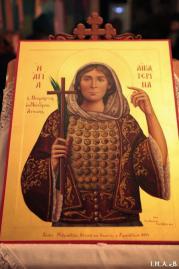
The Church of the True Orthodox Christians of Greece has glorified two Saints:
The Martyr Catherine (Routtes), who suffered for the traditional Church calendar very soon after the introduction of the “new calendar” and the Venerable Father Pachomios of Chios, a monk who reposed in peace.
Read the announcements of the Greek Synod regarding Saint Catherine and Venerable Pachomios
A life of Saint Catherine in English.
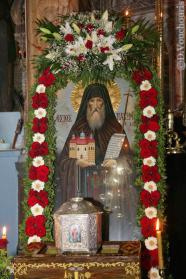 Holy New Martyr Catherine and Venerable Father Pachomios, pray to God for us!
Holy New Martyr Catherine and Venerable Father Pachomios, pray to God for us!
More information regarding the method of recognition of Saints in the Orthodox Church is found here.
Source and second source
Wednesday, October 22, 2014
From the October edition of “The Shepherd”
Just as there is a bad zeal of bitterness, which separates from God and leads to hell, so there is a good zeal, which separates from vices and leads to God and life eternal
St Bede the Venerable (6th century)
Let us not be overcome by unbelief and give ourselves up to all kinds of cares, anxieties, imaginations, day-dreaming, subterfuges and maneuvering to guard ourselves from our enemies and to work against their ill-will or evil intentions. This is forbidden by the Lord, Who says: Do not resist injury. When oppressed by difficult and painful circumstances, let us have recourse to God in prayer; for in His complete power are we and our enemies and our circumstances and the circumstances of all men. He can by His absolute power and supremacy dispose of and annihilate all the greatest difficulties. Let us pray for our enemies with great care, and by this prayer obliterate their malice from their hearts and replace it with love.
St Ignaty Brianchaninov (19th century)
For more see the October edition of the Church magazine The Shepherd, from the St Edward Orthodox Brotherhood.
Saturday, October 11, 2014
What does it mean to carry one another’s burdens?
Bear ye one another’s burdens, and so fulfil the law of Christ.
Gal 6:2
Igumen Methodius gives a sermon on persistence in faith - persistence in prayer, patience, love, forgiveness, and in fulfilling all the commandments of our Lord Jesus Christ.
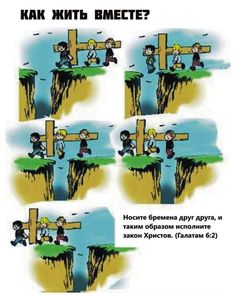 Metropolitan Agafangel expounds further about the necessity of Christians having patience with one another’s weaknesses and passions. The earthly Church is held together by oneness of faith and the common goal and ideal of reaching heaven and eternal life with God. Everything else is of secondary importance, and in such matters, every person has freedom.
Metropolitan Agafangel expounds further about the necessity of Christians having patience with one another’s weaknesses and passions. The earthly Church is held together by oneness of faith and the common goal and ideal of reaching heaven and eternal life with God. Everything else is of secondary importance, and in such matters, every person has freedom.
The Church is not an organisation. It is not a formal institution, such as the Old Testament Church was at the time of the pharisees and sadducees. They did not recognise their Messiah, because they themselves had no spiritual communion with God!
The Church is the mystical Body of Christ!
Sin separates a person from Christ, and His Body, the Church…
Any one of us could be found outside of the mystical unity of the Church…without even realising this ourselves! This can happen if we continue to sin, without repentance, and grace does not find space in our heart… A high rank does not guarantee a place in the Mystical Church, neither does respect from clergy, parishioners or friends…
Each one of us has to ask ourselves:
Are we humble? Do we carry one another’s burdens? Do we forgive others? Do we ask forgiveness from our whole heart? Do we repent? Are we fit for the Kingdom of God?
See also Fr Seraphim Rose’s comments on the nature of the Church as understood in our times, some questions that may arise in the contemporary world.
Sunday, October 5, 2014
Holy Zeal for Christ and Truth by Archbihop Averky (+1976)
Vladika Averky was the Abbott of Jordanville Holy Trinity Monastery, the seminary instructor of whole generation of priests in the Russian Orthodox Church Abroad, and spiritual father to monks such as Fr Seraphim Rose, who later transmitted Vladika Averky’s teaching and understanding of our times to English-speaking faithful.
Thursday, September 11, 2014
The Beheading of St John the Baptist
![]() A prophet is killed because of his love of truth and virtue! Today the Church celebrates the death of St John the Baptist, solemnly urging all its children to fast this day. This is to remind them what is the end of the pleasures of this life, particularly those “pleasures” that are illegal and sinful. Christians should live for the future life, for life with God in Heaven.
A prophet is killed because of his love of truth and virtue! Today the Church celebrates the death of St John the Baptist, solemnly urging all its children to fast this day. This is to remind them what is the end of the pleasures of this life, particularly those “pleasures” that are illegal and sinful. Christians should live for the future life, for life with God in Heaven.
The children of the Church prove their love for God by fasting this day, and fasting from unlawful and sinful “pleasures” all the days of their life.
John accused Herod on account of his evil deeds, but especially concerning Herodias. She was Herod Antipas’ brother’s wife, whom he had seized and illegally wed. John said to him, ‘It is not lawful for thee to have the wife of thy brother.’ Finding the reproach, or rather, the reproaches, unbearable, Herod added this to his other evil acts, that he shut up John in prison.
St Gregory Palamas, 14th century
Herodias was angry. She was knew she was committing adultery, but the law of God meant nothing to her. How many people today inwardly say the same? How many adulterers today would not kill the Prophet of God, if given the chance?
She, by her own efforts and wiles, accomplished the deed and saw it through to its conclusion…She inwardly cherished malice against John….She wanted him dead…For she figured that there was no other way to silence what she took to be an accusation against herself. The abomination in which she was involved did not have just one or two aspects. It was highly complicated. It was a matter of adultery, the most shameful of sins. And it was adultery by none other than the brother of the adulteress’ husband, the father of her daughter…Even if the husband had died, his brother could not marry the widow according to the law of Moses….Herod, furhtermore, did not perpetrate this shameful deed secretly or with any sort of dissimulation. He accomplished the abomination openly and shamelessly.
St Gregory Palamas, 14th century
Hardened sinners always hate their accusers. A sinner always hates the person who hinders him in indulging his sinful passion. And those around them, indulging in the pleasures of life, become blind to truth and ready to follow the most lawless suggestions!
Hearken, you virgins, or rather, you wives also, as many as consent to such unseemliness at other person’s weddings - leaping, and bounding, and disgracing our common nature. Hearken, you men too, as many as follow after those banquets - full of expense and drunkenness - and fear the gulf of the evil one. For indeed, so mightily did he seize upon that wretched man Herod just then, that the latter swore even to give the half of his kingdom. This is what Mark states: “He swore unto her, such was the value he set upon his royal power,; so was he once for all made captive by his passion, as to give up his kingdom for a dance.
St John Chrysostom, 4th century
The princess dances, and the better she dances, the more evil it is. For it is shameful for a princess to be skilled at doing something unbefitting…Satan dances by means of the young girl.
Blessed Theophylact, 11th century
Christians - beware of luxury, pleasures, dancing, good food and wine - that they do not weaken your love for God! St Moses the Black (28.August/10 September) explains why these are dangerous:
These four lead to fornication: (1) eating and drinking; (2) oversleeping; (3) negligence; and (4) decoration of clothes. If thou dost wish to make thy repentance before God, beware of living in luxury. For this stimulates all passions and dispels the fear of God from the heart. But control af the body diminishes the effects of other desires. Desire of food awakens the passions and emotions. So, again, they are controlled by fasting.
St Moses the Black (the Robber) of Egypt, 4th century
The Holy Church teaches her children to keep fasting in order to prevent vice developing in their souls. The effective medicine of fasting has been proven by centuries of ascetics. And history tells us that whenever emotional sensuality, laxity and luxury starts to creep in, sin is not far away…In light of this teaching of the Holy Church, it is not difficult to explain from where the lawlessness of modern “culture” has come. Returning to Herod’s birthday party, we read:
The whole theatre was devilish. For first, it was made up of drunkenness and luxury, whence nothing helpful could come. Secondly, the spectators in it were depraved, and he that gave the banquet the worst transgressor of all. Thirdly, there was irrational pleasure. Fourthly, the damsel, because of whom the marriage was illegal, who ought even to have hid herself, as though her mother were dishonored by her, comes making a show, and throwing into the shade all harlots, virgin as she was. And the time again contributes no little to the reproof of this enormity. For when Herod ought to be thanking God, that on that day the Lord had brought him forth from the womb to light, then he ventures upon those lawless acts. When one in chains, that is John, ought to have been freed by Herod, then he adds slaughter to bonds
St John Chrysostom, 4th century
Who would not have shuddered to see that sacred head, dripping blood, set forth at the feast? But not so the lawless Herod, nor the woman more accursed than he. For such is the nature of the unchaste among women; none so audacious and so savage as they. For if we shudder at hearing these things, what must we suppose of the effect of that sight at the time? What of the feeling of those who sat with him at meat, on seeing blood dropping from a newly-severed head the midst of the revel?
But as for that bloodthirsty woman, and fiercer than furies, she had no feeling at that spectacle. But she even took delight in the dripping gore of the slaughter; yet if nothing else, surely the mere sight, it was to be expected, would effectually turn her cold. But no such feelings had she, the murderess, and full of thirst after the prophet’s blood. For such is the nature of whoredom. It makes men not wanton only, but murderous also. Those women at all events, who desire to commit adultery, are prepared even tfor the slaying of their injured husbands - and not one only, nor two, but ten thousand murders are they ready to venture upon. And of this sort of tragic there are many witnesses.
St John Chrysostom, 4th century
Why does the Church take such a strict view of dancing?
…because it harms morality…anyone who breaks the commandments of God, kills his soul. Amongst the commandments, there is the very important 7th commandment, which prohibits sins against morality: “Do not commit adultery”. This commandments it binding not only for monks, but also for lay people who wish to be true Christians and save their souls. One cannot think, as many unfortunately do now, that a moral life is required only of monks, who deny themselves marriage, and that lay people may live in moral decadence, however they please….True Christianity…allows marriage, a lawful marriage, blessed by the Church - every other kind of bodily cohabitation in the two variants of adultery and fornication is seen by the Christian Church as a heavy sin, equal with murder and denial of the faith, as life itself shows us it is. Therefore it is not surprising that the Church condemns anything that leads to these sins.
We need to evaluate dancing from this point of view. If the dancing is such that it threatens morality, the Church must condemn it:
Archbishop Averky (Taushev) 20th century
The holy and ecumenical [6th] Council universally prohibits so-called pantomimes and their theatrical exhibitions; afterwards, in keeping with this, also the spectacles of wild-animal fury and of hunters’ prowess, and the execution of dances on the stage. If anyone flouts the present Canon, and gives himself over to any of the things herein prohibited, in case he is a clergyman, let him be deposed from office; but in case he is a layman, let him be excommunicated.
51st Canon of the 6th Ecumenical Council.
…Furthermore, the public dances of women, which are calculated to wreak great harm and injury. Furthermore we dismiss also the dances and ritualistic ceremonies performed by men or women in the name of what are falsely called gods among Greeks, after an old custom which is alien to the life of Christians, at the same time decreeing that no man shall put on any feminine costume, nor shall a woman put on any that befits men. But neither shall anybody put on comic, or satyric, or tragic masks; neither shall anybody shout the name of abominable Dionysus while engaged in squeezing grapes in the wine-presses; nor, when pouring the wine into the casks shall they provoke laughter by a show of ignorance or of vanity, by producing the effects of demoniacal delusion. As for those who from now on attempt to carry out any of the aforesaid improprieties, while well aware of what they are doing, if they should be clergymen, we command that they be deposed from office; but if laymen, that they be excommunicated.
62nd Canon of the 6th Ecumenical Council.
These strict canons are as binding for Christians as the ones prohibiting heresy! This is how dangerous the holy fathers consider improper feasting, luxury, acting and dancing for the immortal Christian soul.
For every true Christian these kinds of women’s dances should be disgusting, because they involuntarily remind of the dance of Herodias’ daughter, whose victim became “the greatest one born of women” - the forerunner and Baptist of the Lord, St John.
Archbishop Averky (Taushev) 20th century
For where dancing is, there is the evil one. For neither did God give us feet for this end, but that we may walk orderly: not that we may behave ourselves unseemly, not that we may jump like camels (for if even they too are disagreeable when dancing, much more women), but that we may join the choirs of angels. And mark too the very mode of asking. “Give me here John the Baptist’s head in a charger.” Dost thou see how Herodias was lost to all shame, and became altogether the devil’s?
St John Chrysostom, 4th century
Society no longer agrees with the Church in upholding healthy morality. However, this cannot change the standard set by the Church for her children, which She has set out of love for their immortal souls:
The teaching of the Church, founded on the the Saviour’s coming to earth, will always remain unchanged. The true Church cannot adapt to the spirit of the age and tickle people’s passions. And if modern Christians do not wish to hear the voice of the Church, then this makes it worse for themselves…It is not for the Church to follow after life - but for life to follow the Church. It is not for life to judge the Church and Her teaching and rules, but rather, the Church is given right to judge life by Her Divine Founder, our Lord Jesus Christ, who said: “if [a sinner] neglect to hear the church, let him be unto thee as an heathen man and a publican”, and who also gave the servants of the Church the awesome power to bind and loose the sins of people.
Archbishop Averky (Taushev) 20th century
God’s judgement came upon Herod and Herodias swiftly. They were exiled and ended their days in misery and poverty in a foreign land. As for Salome, the dancing daughter, her death was conformed by her sin:
Salome set out across the frozen river Sikaris one day. The ice broke, and she fell into the water up to her neck. Shards of ice jammed around her neck and she struggled, treading her feet in the water, as she once danced at the court of Herod. She was unable either to raise herself up or to sink down, and a shard of ice severed her head. The water carried her body away, and her head was brought to Herodias on a platter, as was once the head of John the Baptist. Behold, how terribly a death resembles the sin committed.
St Nikolai (Velimirovich) 20th century
The glorious beheading of the forerunner was part of God’s dispensation, that he might proclaim to those in hades the coming of the Saviour. Let Herodias, who demanded the iniquitous murder, therefore lament; for she loved not the law of God nor the age of life, but rather this false and transitory one.
Kondak, Beheading of St John the Baptist
Through the prayers of the Holy Prophet, Forerunner and Baptist John, Lord Jesus Christ, our God, have mercy on us sinners, living in the modern, decadent world!
